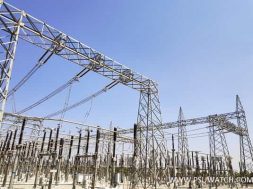
UK electric vehicle production up by a fifth in October – EQ Mag
But trade body SMMT warns supply chain turbulence and economic headwinds still pose major challenges for the UK car sector and its transition to EVs. UK production of electric vehicles (EVs) continues to rise, with volumes up more than a fifth as domestic car production returned to growth in October, according to the latest industry figures released today.
Car manufacturers produced more than 24,000 EVs last month – including battery electric, hybrid, and plug-in hybrid vehicles – marking an increase of more than 20 per cent compared to September, trade body SMMT revealed today.
It means that UK car factories have produced a record 61,300 battery electric vehicles in 2022 to date, up more than 16 per cent on the same period last year, as demand continues to grow for zero emission models.
It comes off the back of a flurry of fresh milestones for Britain’s burgeoning battery car sector, which set a fresh record for exports in September when one in seven cars exported from the UK were pure electric models. Domestic sales are also booming, with more than a million plug-in cars having now been registered to date in the UK, as much as a quarter of which have been sold since only January.
Despite the positive EV growth figures, however, there remains significant economic and supply chain headwinds for the UK’s car and battery sectors, with the economy already thought to be in recession and trade with Europe and beyond having declined since Brexit.
The UK has struggled to put in place a robust domestic supply chain for key components such as EV batteries and semiconductors.
Most notably, high profile battery manufacturing start up BritishVolt has faced significant financial challenges as it looks to deliver on its plan to establish the UK’s first ‘gigafactory’ for electric car batteries in Northumberland.
UK-based electric van specialist Arrival has also been facing cashflow problems as it seeks to scale its manufacturing capacity in response to rising demand, with reports today suggesting the firm’s billionaire founder and CEO is to step down. Denis Sverdlov, who remains a major shareholder in the business, is set to serve as chair of the board after being replaced as CEO by former Marvel Entertainment head Peter Cuneo.
Nasdaq-listed Arrival has in recent months been forced to ditch plans to produced electric vans and buses in the UK, shifting its focus instead to the US as it battles with cashflow challenges.
Meanwhile, ongoing supply chain turbulence has also hit the wider car industry hard, which in turn threatens to curb growth of the UK’s EV sector, according to SMMT chief executive Mike Hawes.
“UK car makers are doing all they can to ramp up production of the latest electrified vehicles, and help deliver net zero, but more favourable conditions for investment are needed and needed urgently – especially in affordable and sustainable energy and availability of talent – as part of a supportive framework for automotive manufacturing,” he said.
The government maintains that it is pumping billions of pounds into the development of the UK’s EV supply chain and charging network, which has helped drive soaring demand for EVs.
However, industry insiders remain frustrated at the level of support, after a number of leading auto companies opting to locate new EV production lines in Europe. The government’s decision to cut grants for new EVs and last week’s announcement from the Treasury that vehicle excise duty will be levelled on EVs from 2025 have also come in for criticism, with campaigners highlighting how UK EV adoption is lagging behind neighbouring markets such as Germany, the Netherlands, and Norway.
In related news, London Mayor Sadiq Khan today confirmed the capital’s Ultra Low Emission Zone, which imposes charges on older and more polluting vehicles, is to be expanded to cover the whole city.
Under the plans, from 29 August next year drivers of the most polluting cars will have to pay £12.50 a day to enter to the Greater London Authority boundary.
“The ULEZ so far has been transformational, reducing harmful pollution levels by almost a half in central London,” Khan said. “But there is still far too much toxic air pollution permanently damaging the health of young Londoners and leading to thousands of early deaths every year, with the greatest number of deaths in the outer London boroughs.”


















